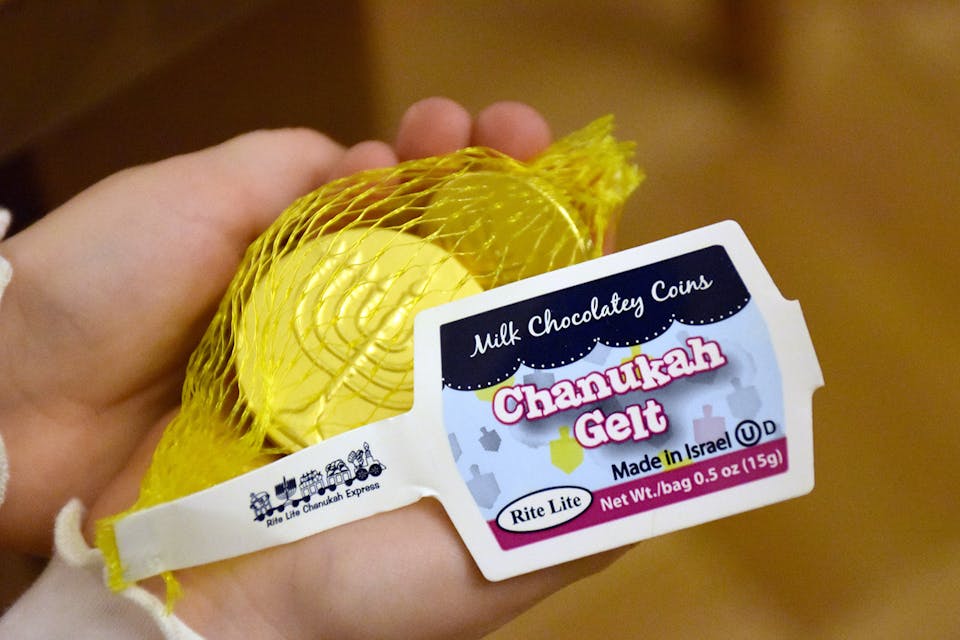
December 5, 2018
Why “Hanukkah Gelt” and not “Hanukkah Money”?
By PhilologosIt sounds less mercenary—which is probably also why real coins eventually gave way to chocolate ones.
“Hanukkah gelt” is an unusual expression in American Jewish speech. Apart from the Orthodox, such Yiddishisms aren’t commonly employed in English for Jewish religious practices and customs. Orthodox Jews may go to “shul,” but most other Jews go to synagogue or temple. The former “daven,” the latter pray. The more punctiliously observant speak of “Likhtbentshn”; for the less rigorous, it’s candle lighting. Yet who says “Hanukkah money”?
Apparently, no one. That’s the conclusion to be drawn from an op-ed column published by Michael David Lukas this week in the New York Times under the title “The Hypocrisy of Hanukkah.” In explaining why he celebrates Hanukkah with his family, Lukas, who describes himself as an “assimilated” Jew and a “product of intermarriage,” speaks of “the version of Hanukkah that I grew up with: presents and chocolate gelt.” And at the end of the column, the gist of which is that, for the author, celebrating Hanukkah is basically a way of not celebrating Christmas, he writes about how, after lighting the Hanukkah candles, “I’m going to sneak my daughter an extra piece of chocolate gelt and break out the presents. Because at the end of the day, it’s all about beating Santa.”
Indeed, since the Times presumably has a few non-Jewish readers alongside its Jewish ones, it would seem that both Lukas and the paper’s editors expect them, too, to know what Hanukkah gelt is, at least when it comes wrapped in gold tinsel. And perhaps, in New York City if not in Iowa City, they do.